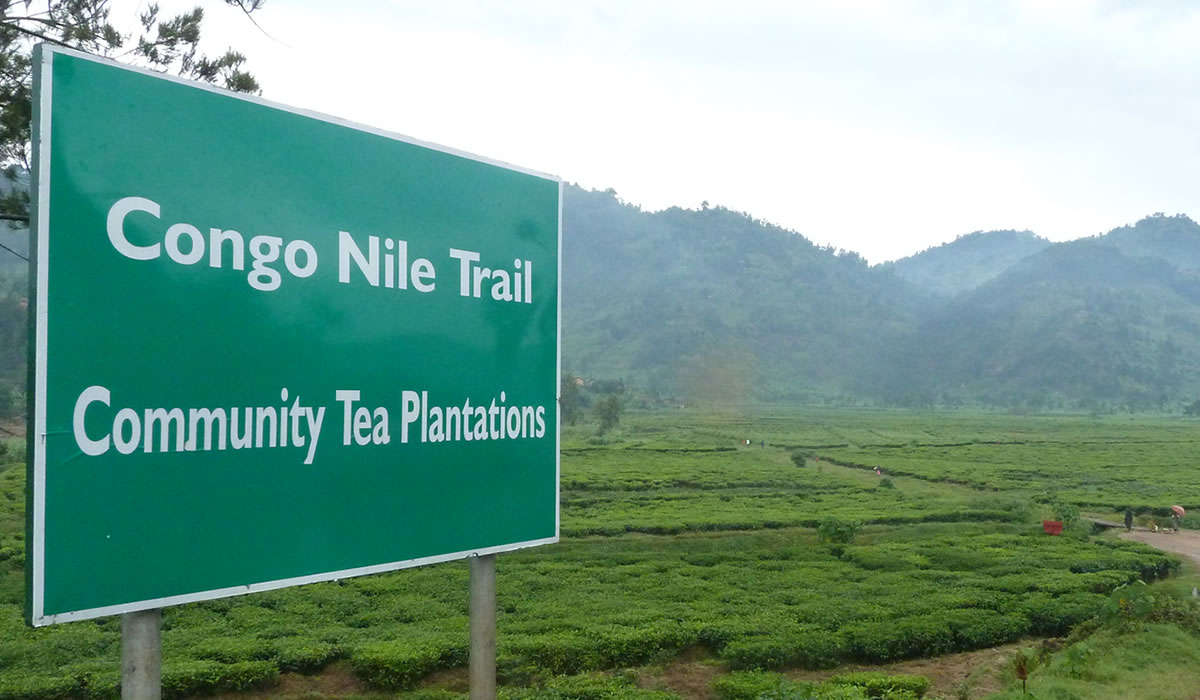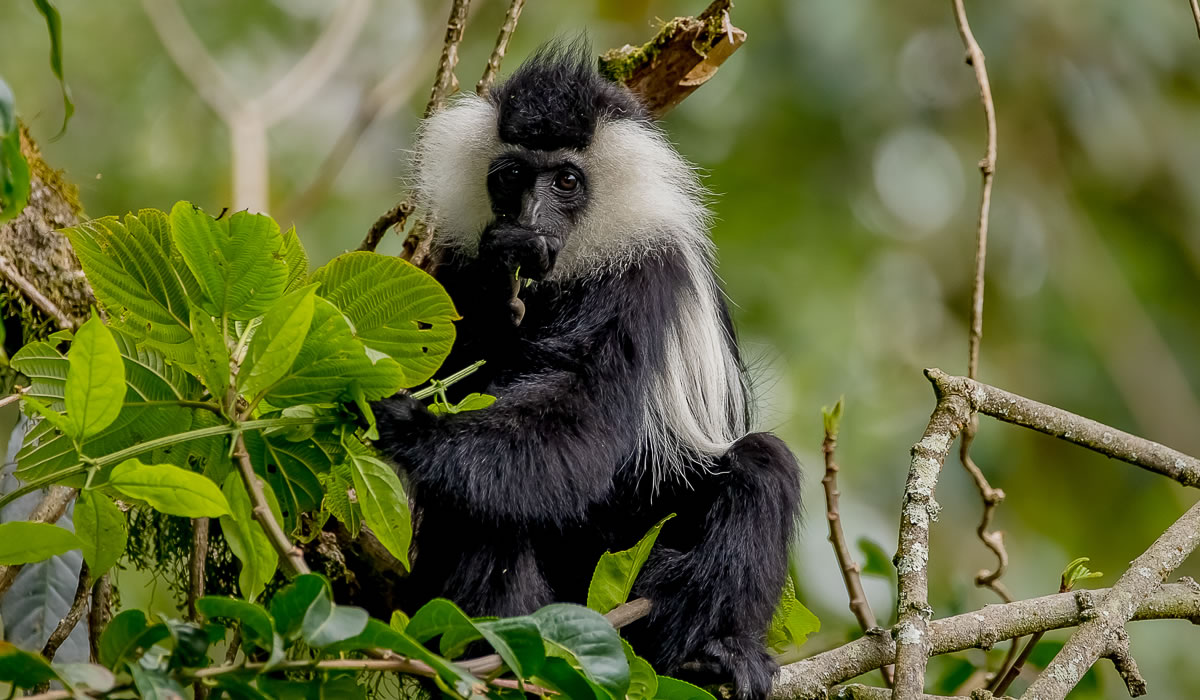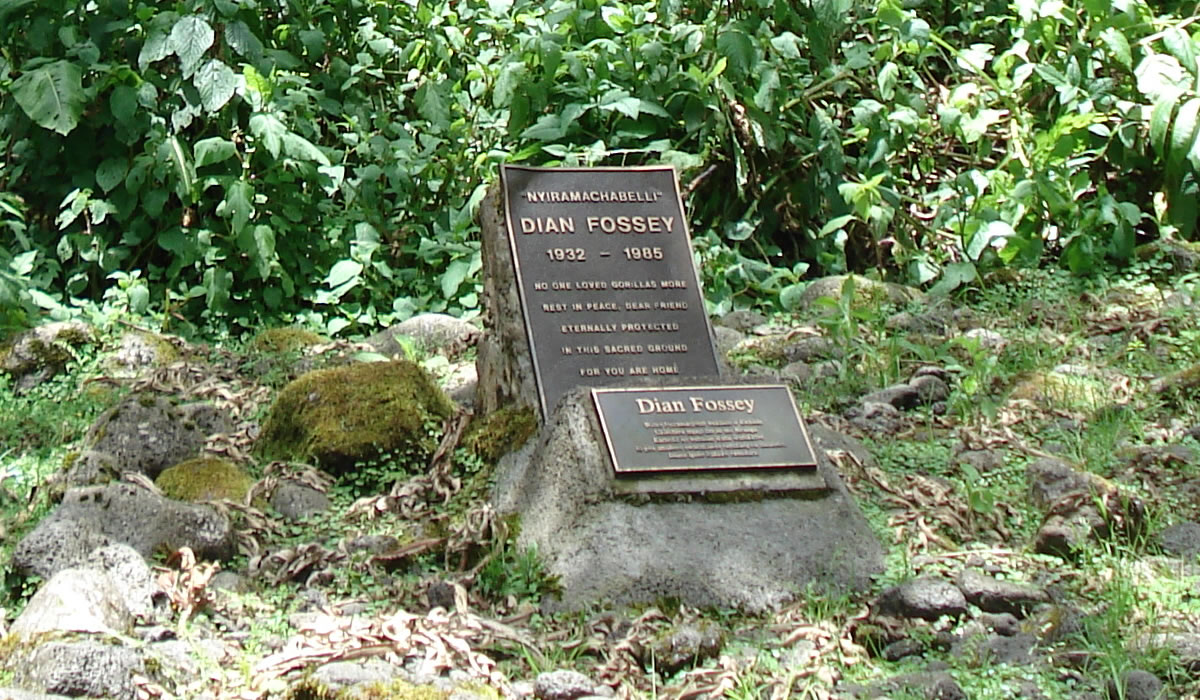Located in the southwestern part of Rwanda, Nyungwe Forest National Park stands as one of…

Congo Nile Trail Experience in Rwanda
Located within the lush hills and along the tranquil shores of Lake Kivu in western Rwanda, the Congo Nile Trail offers one of the most exhilarating and scenic travel experiences in East Africa. Winding its way for over 227 kilometers from the town of Rubavu (Gisenyi) in the north to Rusizi in the south, the trail traverses a dramatic landscape of rolling green hills, coffee and tea plantations, remote villages, and panoramic lake vistas. Whether you are a hiker, cyclist, or adventure enthusiast, the Congo Nile Trail provides a unique opportunity to explore Rwanda’s natural beauty, cultural richness, and rural charm at an unhurried, immersive pace.
A Trail with a Story
The name “Congo Nile Trail” originates from the trail’s location along the divide between the Congo and Nile river basins. This continental watershed means that rain falling on one side of the trail flows westward into the Congo River and ultimately the Atlantic Ocean, while rain on the other side makes its way eastward into the Nile River and eventually the Mediterranean Sea. Beyond its geological significance, the trail is a conduit to understanding Rwanda’s post-genocide resurgence and the country’s strong commitment to ecotourism, conservation, and sustainable community development.
Trail Overview
The Congo Nile Trail stretches approximately 227 kilometers (141 miles) and can be completed in various ways depending on a traveler’s preference and fitness level. The full trail can take 8 to 10 days on foot or 4 to 6 days by mountain bike. The route begins in Rubavu, a relaxed lakeside town popular for its beaches, hot springs, and views of the Virunga volcanoes. From Rubavu, the trail winds southward through the districts of Rutsiro, Karongi (Kibuye), Nyamasheke, and ends in Rusizi, near the border with the Democratic Republic of Congo and Burundi.
The trail includes a mix of singletrack paths, dirt roads, and well-maintained village routes. The terrain is moderately challenging, with numerous ascents and descents, and passes through varied ecosystems from dense forest patches and banana plantations to eucalyptus groves and open ridges. Travelers encounter small villages, bustling local markets, and warm interactions with Rwandans who live along the route. Given the country’s renowned cleanliness and safety, the trail is considered one of the most secure and pleasant long-distance routes in Africa.
Highlights Along the Trail
Rubavu (Gisenyi): Starting at the northern edge of Lake Kivu, Rubavu is a great place to acclimatize before setting off. Attractions include Gisenyi Public Beach, the Lake Kivu Serena Hotel, Rubona hot springs, and the border area with Goma in the Democratic Republic of Congo. Rubavu is also home to lively local restaurants and cafes, offering the first taste of Rwandan hospitality.
Kinunu and Coffee Country: Heading south from Rubavu, the trail takes you into Rwanda’s fertile coffee-growing region. Kinunu, a highlight for many travelers, is a small village known for its coffee washing stations. Here, you can take guided tours to learn how Rwanda’s famous Arabica beans are grown, harvested, and processed. Tasting fresh coffee with a view of Lake Kivu is a rewarding and aromatic experience.
Musasa and the Hills of Rutsiro: This segment of the trail features some of the most dramatic scenery, with steep ascents offering panoramic views of the lake and its many islands. The Rutsiro district is known for its tea plantations and the verdant forest cover that provides a cool, serene atmosphere for trekkers.
Karongi (Kibuye): About halfway along the trail, Karongi is a larger lakeside town with more developed facilities. It is an ideal rest point with comfortable guesthouses, charming cafes, and lake activities such as kayaking and boat rides to Napoleon Island. Karongi also houses the Environmental Museum and the Genocide Memorial Church sites that offer deeper insights into Rwanda’s cultural and historical journey.
Nyamasheke and Gisovu Tea Estate: This stretch introduces you to Rwanda’s high-altitude tea plantations, particularly around the Gisovu Tea Estate, which is renowned for its premium-quality tea. The fresh mountain air, coupled with scenic views and encounters with tea pickers at work, make this portion especially enriching. There are opportunities to tour the factory and taste freshly brewed tea while soaking in the peaceful surroundings.
Rusizi and Nyungwe Forest Access: The trail concludes in Rusizi, a bustling town that serves as a gateway to Nyungwe National Park, one of Africa’s oldest rainforests and a biodiversity hotspot. Many travelers choose to extend their trip here to explore the park’s canopy walk, chimpanzee tracking, or birdwatching. Rusizi is also close to the border with Bukavu in the DRC, offering a launchpad for further regional adventures.
Modes of Exploration
The Congo Nile Trail can be undertaken in different ways, catering to different adventure levels:
- Hiking/Walking: Ideal for those wanting to deeply engage with the environment and communities. Walking allows for flexible pacing and more spontaneous interactions. The Rwanda Development Board and local tour operators can assist with guides and porters.
- Mountain Biking: This is the most popular way to complete the trail. Mountain biking offers the perfect balance between covering distance and absorbing the scenery. Bikers need to be fit, as some sections involve steep climbs and rugged paths, but the reward is a thrilling and memorable ride.
- Kayaking (Partial Route): For a different perspective, travelers can choose to kayak along parts of Lake Kivu. Kayaking tours can be arranged from Rubavu, Karongi, or Nyamasheke and include island visits and overnight stays in lakeside villages.
- Vehicle Support/Hybrid Trips: For those short on time or less physically inclined, 4×4 vehicles can be arranged to follow parts of the trail, stopping at key cultural or scenic sites. This method combines comfort with the essence of the trail’s experience.
Accommodations and Logistics
Accommodation along the trail varies widely, from basic village guesthouses and campsites to mid-range lodges and hotels in larger towns. Homestays are increasingly available, offering authentic cultural exchanges and local meals. Some notable accommodations include the Kinunu Guesthouse, Rwiza Village Lodge in Karongi, and Kivu Lodge in Nyamasheke. It is advisable to book accommodations in advance, especially during Rwanda’s dry season from June to September and December to February.
Tour operators based in Kigali and Rubavu can arrange full trail packages, including bicycles, guides, support vehicles, and meals. For independent travelers, carrying a detailed map, basic first aid, and supplies is recommended, although food and water are accessible at most villages en route.
Best Time to Visit
The best time to experience the Congo Nile Trail is during Rwanda’s dry seasons, typically from mid-December to February and June to mid-September. These months offer more predictable weather, clearer skies, and more comfortable trail conditions. However, Rwanda’s temperate climate, due to its elevation, means the trail is accessible year-round. During the rainy season, the path can become muddy and slippery, which makes hiking and biking more challenging.
Cultural and Environmental Impact
One of the most rewarding aspects of the Congo Nile Trail is its emphasis on sustainable tourism. The trail brings economic opportunities to rural communities through homestays, craft sales, guiding services, and produce markets. Travelers are encouraged to respect local customs, minimize plastic use, and support local enterprises.
Moreover, the trail showcases Rwanda’s efforts in conservation and community development. The proximity to Nyungwe Forest and the integration of eco-friendly practices by many lodges reinforce Rwanda’s identity as a leader in responsible tourism.
The Congo Nile Trail in Rwanda is far more than just a trekking or biking route, it’s a journey into the soul of a resilient and beautiful nation. It is where adventure meets authenticity, where every step or pedal stroke brings you face-to-face with a stunning landscape and the stories of the people who call it home. From the lakeshore sunsets in Rubavu to the misty ridges near Nyungwe, the trail embodies Rwanda’s transformation into a beacon of ecotourism and sustainable travel in Africa.
Whether you’re seeking an off-the-beaten-path adventure, a cultural deep dive, or simply a peaceful escape into nature, the Congo Nile Trail promises an unforgettable experience. With its combination of natural splendor, cultural richness, and community hospitality, it stands out as one of East Africa’s most inspiring and rewarding travel experiences.




